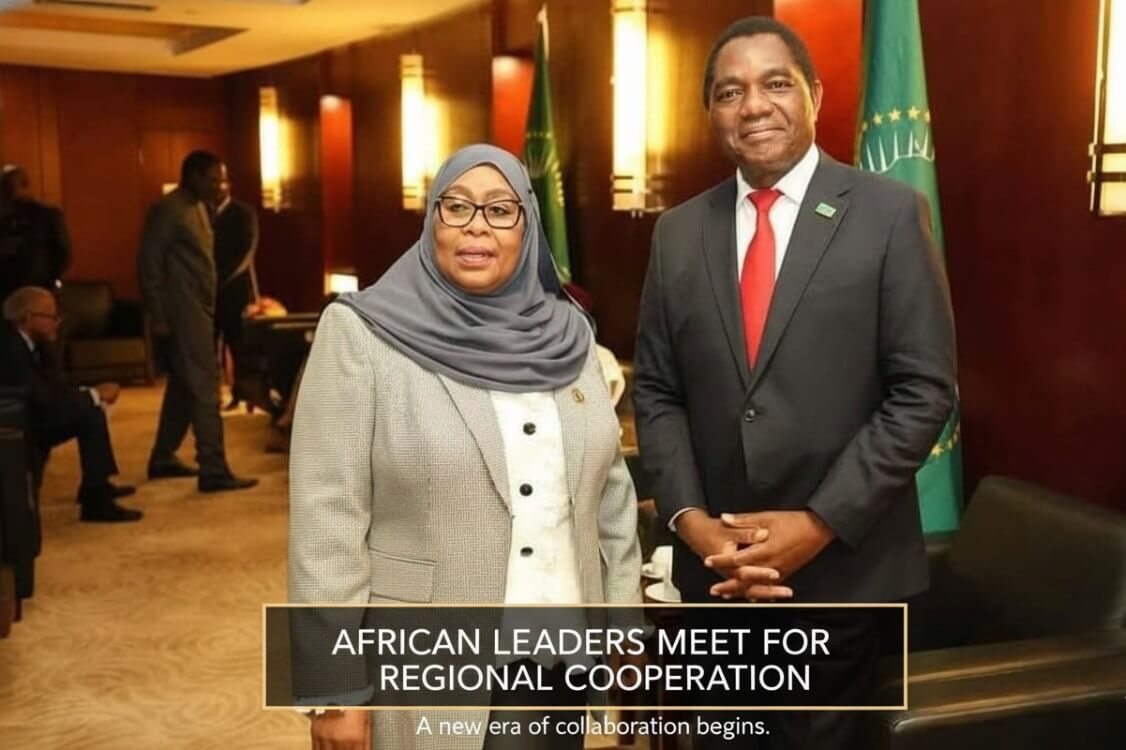Zambia’s political landscape is once again in the spotlight as President Hakainde Hichilema (HH) embarks on a controversial foreign visit ahead of the crucial 2026 general elections. His decision to attend President Samia Suluhu Hassan’s swearing-in ceremony in Dodoma has sparked debate at home and abroad over whether this move was a show of regional statesmanship or a strategic blunder.
According to The Kenya Times, “Only one foreign head of state, Zambian President Hakainde Hichilema, attended President Hassan’s swearing-in ceremony at State House Chamwino.” The image of Hichilema standing alone among East Africa’s absent leaders was symbolic — the once-celebrated reformer now appearing as a solitary figure under international scrutiny.
But diplomacy is not merely about optics. True statesmanship, especially in African politics, is measured by timing, principle, and political wisdom — all of which are being questioned in this instance.
Regional Reactions and the Optics of Isolation
Notably missing from the ceremony were key East African leaders: William Ruto, Yoweri Museveni, Évariste Ndayishimiye, Félix Tshisekedi, and Paul Kagame. Their absence — combined with both the EAC’s boycott and SADC’s dismissal of Tanzania’s election as flawed — spoke volumes.
For Zambia’s President Hichilema, the optics are complex. If even leaders accused of manipulating elections themselves refuse to attend, what does that say about the legitimacy of the event — and about HH’s choice to participate?
Analysts argue that Hichilema’s decision risks aligning Zambia’s foreign policy with a regime facing internal resistance. Should Tanzania’s political crisis escalate or a new leadership emerge, Zambia could face diplomatic backlash or strained economic ties. Such outcomes could complicate HH’s reform agenda and weaken his standing ahead of Zambia’s 2026 elections.
Democracy, Contradictions, and Political Lessons
President Hichilema reportedly spoke on democracy and governance in Tanzania — yet critics highlight contradictions in that narrative. While HH’s UPND government promotes itself as a democratic model, domestic critics accuse it of tightening political space and suppressing dissent.
Observers note that Hichilema’s political journey — from opposition leader to president — indeed embodies perseverance. However, his moral authority depends on how he upholds democratic values at home. Tanzania’s election, where President Hassan reportedly won with 98% of the vote, drew sharp criticism from observers who saw it as neither free nor fair.
By attending the event, Hichilema may have inadvertently undermined his own democratic credibility, signaling that Zambia’s commitment to democratic principles could be flexible when convenient.
Zambia’s Fragile Political Climate
Within Zambia, tensions are rising. Public confidence in government institutions is waning, economic hardships persist, and youth movements are becoming increasingly vocal. The UPND administration faces growing pressure to deliver on promises of transparency, accountability, and economic stability.
If Hichilema views Tanzania’s model of post-election control as a blueprint, he may be misreading Zambia’s reality. Unlike Tanzania, Zambia’s democratic culture is deeply rooted, and attempts to impose authority through force could trigger widespread resistance. Young Zambians, empowered by digital platforms and civic activism, are now the driving force of political change.
Leadership, Legitimacy, and Zambia’s Path Forward
Across Africa, disputed elections have led to instability, economic decline, and social unrest. Zambia’s President must recognize that legitimacy cannot be imported from foreign podiums; it must be earned at home through credible governance and public trust.
For many Zambians, Hichilema’s presence in Dodoma symbolized a disconnect — prioritizing international image over domestic realities. With the 2026 elections approaching, the President’s greatest challenge lies not abroad but within Zambia’s borders: rebuilding unity, restoring faith in democratic processes, and proving that his leadership stands on principle, not political expedience.
Conclusion
Hichilema’s symbolic visit to Tanzania may have been intended as a gesture of diplomacy, but it has reignited debates about his political judgment and Zambia’s direction under his leadership. As the countdown to the 2026 Zambian elections continues, one truth remains clear — Zambia’s democracy will not be shaped by foreign ceremonies or borrowed models, but by the courage and conviction of its people.

